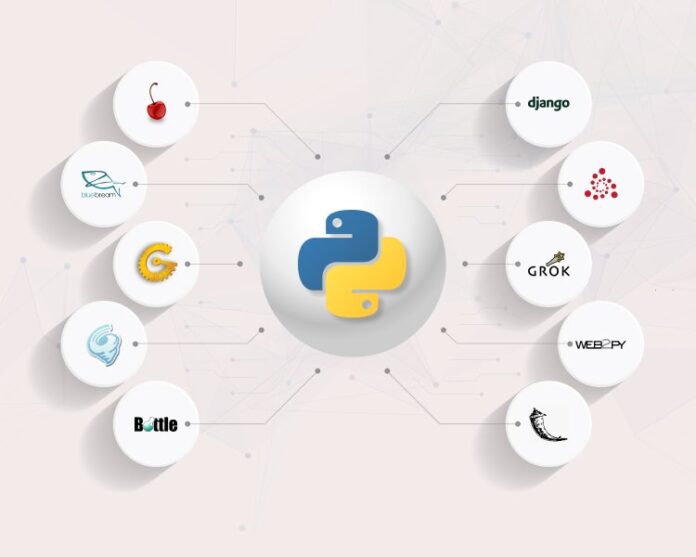Choosing the right framework for your next project can seem like quite a daunting task with all of the possible options that are out there. This list breaks down some of the top Python frameworks and how they compare to each other in order to help you choose the one that’s best suited for your project. As this industry changes rapidly, we’ll be sure to update this list as more frameworks come onto the market, but here are some of the major players currently available on the market today
Django
If you’re building your app from scratch, Django is a great choice. It comes with everything you need to get started (which also means it has quite a bit of overhead). It also gives you total freedom, allowing you to set up your database however you like—which can be both good and bad. If used properly though, Django provides solid performance and security. Developers say its modularity makes it extensible.
Kivy
A relatively new framework for building mobile applications. It’s written in Python and makes use of other open source projects to bring you a full stack solution. If you want to build apps on top of Android or iOS, then Kivy is worth checking out. The apps are built using native code, so they feel a lot more like a native app than some other solutions which can leave you with an app-like experience that doesn’t feel as good as it should.
Toga
There are a lot of good Python frameworks for building apps and Toga is one that is making a lot of headway in 2017. Toga is open-source and lightweight, which makes it easier to work with than some of its heavier counterparts such as Flask or Django. Toga has also been used in production by some major tech companies such as Uber and Walmart Labs. Plus, there’s a growing community around it as well.
PyQt
It is written in C++ and has Python bindings. It works well on Windows, Mac OS X and Linux. Also it is a good alternative to python-based GUI frameworks.
PySide
A cross-platform GUI toolkit for Python (Qt framework), used by various apps on Ubuntu Touch. It’s based on PySide2, which is a port of PySide 1 to Qt5. It has been merged with PyQt5 and is now called Qt for Python. Kivy: Kivy is an open source software library developed in C++ that allows you to create applications that run on Linux, Windows, Mac OS X, Android and iOS. It uses OpenGL ES 2 for hardware acceleration and supports multi-touch input.
TornadoFX
A framework for developing desktop and mobile applications with JavaFX. [ 5] Kivy: Kivy is a cross-platform Python library that allows developers to create applications that run on Linux, Windows, Mac OS X, Android, iOS and other platforms.
Web2Py
Python is a commonly used high-level programming language. It’s available for free, and it runs on all major operating systems. One of Python’s key strengths is its powerful support for many different programming paradigms, including object-oriented, imperative and functional styles. The Web2py framework relies on it to make building web applications easy. The site features plenty of tutorials that cover various development scenarios with step-by-step guides along with sample code snippets to help you get started quickly.
Bottle
Simple, fast, and easy to use. Suitable for small projects. Written in Python. Flask: A microframework based on Werkzeug, Jinja 2 and good intentions. It’s intended to make getting started quick and easy, with all the power of a full-featured framework when you need it.
Derby Framework
Derby is a web application framework for Python built around REST. It’s designed to simplify Rapid Application Development of database-driven web applications, and it can be used as a stand-alone framework or as a basis for developing higher level frameworks on top of it. Derby supports WSGI and Twisted Web (based on HTTP) and comes with its own ORM, tools for testing and database schema migration capabilities. The main goal is to provide support for relational databases in general, but Derby includes additional support for SQLite specifically.
PureMVC
It’s an MVC framework which follows a more structural format in code. It also helps simplify code quite a bit and keeps it easy to read. This is just one of many Python frameworks for mobile app development, but it has its benefits over others such as Spring MVC or Django.

















